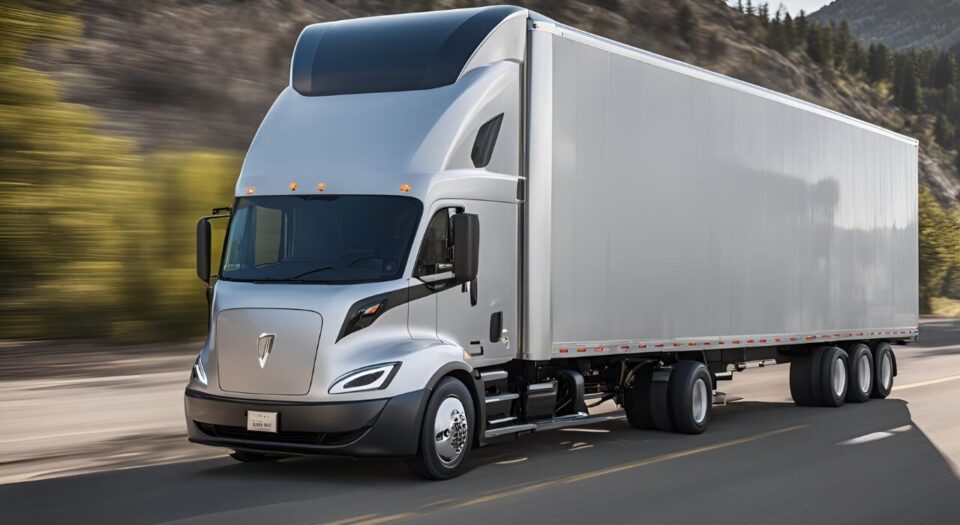The trucking industry is undergoing a massive transformation, driven by advances in technology and a global push towards sustainability. Electric trucks are at the forefront of this change, offering an alternative to traditional diesel-powered vehicles. For commercial driver’s license (CDL) holders, understanding the rise of electric trucks is crucial as it presents new opportunities, challenges, and a shift in how the trucking industry operates.
Why Electric Trucks Are Gaining Traction
Electric trucks are gaining traction due to a combination of environmental concerns, government regulations, and advancements in battery technology. Here’s why these vehicles are becoming increasingly popular:
1. Environmental Benefits
One of the biggest advantages of electric trucks is their ability to reduce greenhouse gas emissions and air pollution. Unlike diesel trucks, electric vehicles produce zero tailpipe emissions, making them an environmentally friendly alternative. Many companies are now prioritizing sustainability and looking for ways to reduce their carbon footprint, driving demand for electric trucks.
Additionally, effective EV fleet management systems help companies optimize the performance and charging schedules of electric trucks, ensuring seamless integration into their logistics operations.
2. Cost Savings Over Time
Although electric trucks often come with a higher upfront cost, they offer significant savings over the long term. Lower maintenance costs, cheaper electricity rates compared to diesel fuel, and government incentives all contribute to reducing total ownership costs. For CDL drivers and fleet operators, this can translate to substantial financial benefits in the long run.
3. Compliance with Emission Standards
As emission standards become stricter, fleet operators and drivers must find ways to comply with evolving regulations. Electric trucks can help meet these requirements without the need for expensive emissions control systems, providing a simpler and more efficient solution for companies looking to stay compliant.
Key Differences Between Electric and Diesel Trucks
While the basic principles of driving remain the same, electric trucks come with unique characteristics that every CDL driver should be aware of.
1. Driving Experience and Power Delivery
Electric trucks offer a different driving experience compared to traditional diesel-powered vehicles. Electric motors provide instant torque, resulting in smooth acceleration and better performance during stop-and-go traffic. This can make driving electric trucks feel more responsive and less fatiguing for drivers.
2. Charging Infrastructure
One major challenge for electric trucks is the availability of charging infrastructure. Unlike diesel refueling stations, which are widely available, electric truck charging stations are still in the process of being developed across the country. Planning routes and managing charging times will be a critical part of driving an electric truck. CDL drivers must adapt to this new reality by learning how to efficiently incorporate charging stops into their schedules.
3. Range Limitations
The range of electric trucks is generally lower than that of diesel trucks. While advances in battery technology are continually increasing the distance these vehicles can travel on a single charge, range anxiety remains a concern. This means that electric trucks are often best suited for shorter hauls and regional routes. As battery technology improves, long-haul electric trucks will become more feasible.
The Future Job Market for CDL Drivers
The rise of electric trucks is not just about changes in technology; it’s also reshaping the job market for CDL drivers. Here’s what drivers need to consider when looking to the future:
New Training Requirements
Operating electric trucks may require CDL holders to undergo specialized training to learn about new technologies and safety protocols. Enrolling in Online CDL training by experts can be a great way to stay ahead of the curve and gain the skills needed to operate electric vehicles confidently.
Increased Demand for Technologically Skilled Drivers
As trucking becomes more technologically advanced, employers will increasingly look for drivers with a deeper understanding of modern vehicle systems. Drivers who are comfortable with onboard computers, data analytics, and telematics will have a competitive edge in the job market.
Advantages for the Environment and Society
Electric trucks offer several advantages that go beyond cost savings and job opportunities.
1. Reduced Noise Pollution
Electric trucks operate more quietly than their diesel counterparts, making them ideal for urban areas where noise restrictions are in place. This benefit also leads to less driver fatigue, as quieter cabins can create a more comfortable driving experience.
2. Enhanced Public Perception
Trucking has often been criticized for its environmental impact. The adoption of electric trucks can help improve the industry’s public image, showcasing a commitment to sustainability and environmental responsibility.
3. Opportunities for Innovation
The rise of electric trucks is fostering innovation in the transportation industry. From new charging solutions to advances in battery technology, CDL drivers have the opportunity to be part of a period of rapid change and growth that could define the next era of trucking.
Challenges to Consider
While electric trucks offer many advantages, there are still challenges to overcome:
- Charging Times: Charging an electric truck takes significantly longer than refueling a diesel vehicle. While rapid chargers are being developed, downtime for recharging remains a key consideration for fleet operators and drivers alike.
- Limited Availability: The current market for electric trucks is still in its early stages. Availability varies by region, and some companies may find it challenging to source electric vehicles in sufficient quantities. As demand grows, however, more manufacturers are expected to enter the market, driving down costs and increasing supply.
Conclusion: Embracing the Electric Trucking Revolution
The rise of electric trucks represents a transformative moment in the trucking industry. For CDL drivers, embracing this change means staying informed, acquiring new skills, and adapting to evolving technology. By understanding the benefits, challenges, and job market implications, drivers can position themselves for success in a greener, more sustainable future of trucking.

